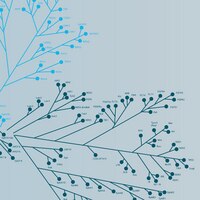14-505 Sigma-AldrichPKC iota Recombinant Human Protein, Active, 10 µg
Active, N-terminal His6-tagged, recombinant full-length human PKC iota. For use in Kinase Assays.
More>> Active, N-terminal His6-tagged, recombinant full-length human PKC iota. For use in Kinase Assays. Less<<Produits recommandés
Aperçu
| Replacement Information |
|---|
| References |
|---|
| Product Information | |
|---|---|
| Quality Level | MQ100 |
| Applications | |
|---|---|
| Application | Active, N-terminal His6-tagged, recombinant full-length human PKC iota. For use in Kinase Assays. |
| Key Applications |
|
| Physicochemical Information |
|---|
| Dimensions |
|---|
| Materials Information |
|---|
| Toxicological Information |
|---|
| Safety Information according to GHS |
|---|
| Safety Information |
|---|
| Storage and Shipping Information | |
|---|---|
| Storage Conditions | 6 months at -70°C |
| Packaging Information | |
|---|---|
| Material Size | 10 µg |
| Material Package | Also available in 250 µg size --call for pricing and availability and reference catalog number 14-505M when ordering the 250 µg size. |
| Transport Information |
|---|
| Supplemental Information |
|---|
| Specifications |
|---|
| Global Trade Item Number | |
|---|---|
| Référence | GTIN |
| 14-505 | 04053252623226 |
Documentation
PKC iota Recombinant Human Protein, Active, 10 µg FDS
| Titre |
|---|
PKC iota Recombinant Human Protein, Active, 10 µg Certificats d'analyse
| Titre | Numéro de lot |
|---|---|
| PKC iota, active - 1590317-H | 1590317-H |
| PKC iota, active - 1590317-I | 1590317-I |
| PKC iota, active - 1590317-J | 1590317-J |













